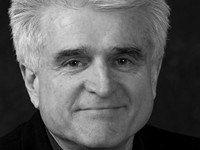Today I had the pleasure to interview Daryl Conner on the importance of degrees and certifications for Organizational Change Practitioners. He has a particular opinion on the subject that has far-reaching implications for us as organizational change practitioners. Have a look at the below video and transcript to find out what we are up to when we are courageous enough to look in the mirror.
Necessary But Not Sufficient
Certification provides us criteria for excellence, not only for new practitioners, but also for clients. In a sense it gives us the security of having a standard to measure against. But that is only a part of the story, because a certificate tends to be more about what we do instead of who we are. Certificates testify knowledge, skills and experience.
Certification is not the same thing as being a good organizational change practitioner. It’s a necessary criterion but not sufficient for excellence in organizational change management. For Conner, there is a difference between being a good technician and having wisdom over a subject. The first comes from doing something for a long time, but the second comes from being centered in who you are.
Going Beyond What We Know
It is good to let the knowledge and technical skills be the entry criteria, but then it is time to dive into who we are as an organizational change practitioner. According to Conner the real question is: ‘Beyond what we know, how do we bring forward who we are?’ This has been the particular focus of his work. It is called Strength Of Character (SOC) and it pretty much defines the added value of our presence as an organizational change practitioner. SOC is about the presence that we bring on top of the tools, techniques and methodologies.
At Conner Partners they pay particular attention to the predisposition for the characteristics that practitioners need to bring to a customer situation. Although SOC is unique in the consulting industry – which primarily relies on certification and experience as the only measure – Conner Partners has chosen not to advertise or market the concept. ‘Instead of promoting it, we focus on being it’ Conner adds.
What It Means For Us
When I asked Conner what this means for me as an independent organizational change practitioner, he recommends to be honest with myself about who I am and to start looking for customers who resonate with my own values.
Nevertheless there is a point of attention. We should not necessarily be looking for clients that ‘like’ us, but for clients that get value out of working with us. Our job is to help our customers to make informed decisions. The one question that we should keep in the back of our heads is ‘Am I here to make the client happy or am I here to practice my craft?’



Pingback: Flow for Consultants | Reply-MC()